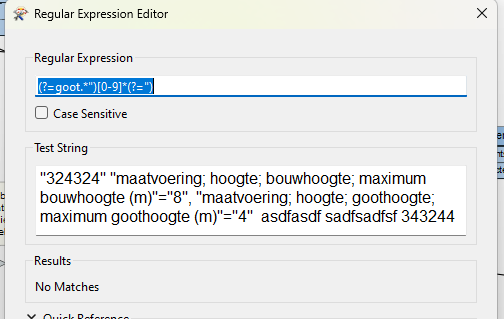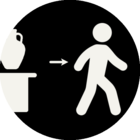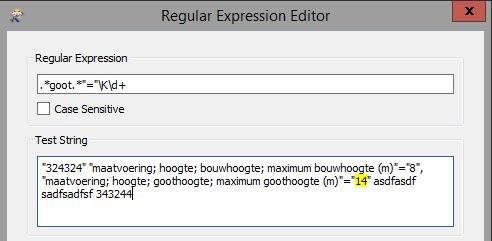I've got an issue with the stringsearcher. It does not seen to work as I expect it do do. It might be my regex skills, but I think I tried all possibilities.
What
I've got the following text: "324324" "maatvoering; hoogte; bouwhoogte; maximum bouwhoogte (m)"="8", "maatvoering; hoogte; goothoogte; maximum goothoogte (m)"="4" asdfasdf sadfsadfsf 343244
In this text I would like to find the first number after it finds the word 'goot' in the text. In this example this should be the bold number 4. I'm trying to do this with the following expression: (?=goot.*")[0-9]*(?=")
But it does not give any results as you can see in the screenshot below.

Any ideas what I'm missing here?
Best answer by geomancer
View original






 According to
According to 

